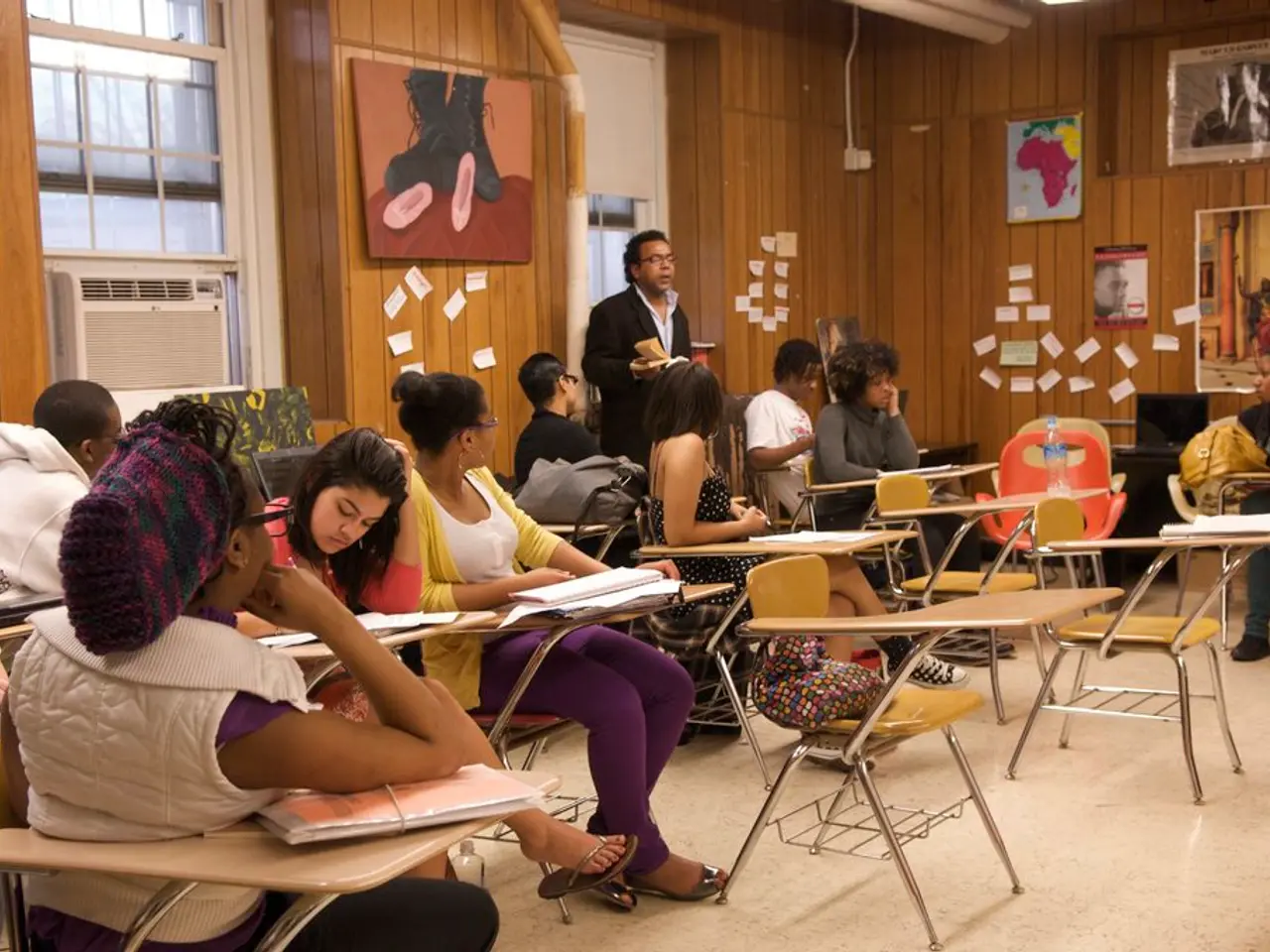Online Etiquette Core Competencies for a Responsible Digital Reputation
In today's interconnected world, mastering digital citizenship skills has become essential for both personal and professional growth. These skills, which encompass digital literacy, online safety, digital communication, and digital ethics, enable individuals to interact safely and ethically in various online contexts.
In the educational sphere, digital citizenship skills foster critical thinking and ethical decision-making. Developing these competencies is integral to the curriculum, integrating them seamlessly into lessons to ensure students develop the critical skills necessary for navigating the digital landscape. Assessment methods vary widely, from formative assessments and summative assessments to performance evaluations and self-evaluation techniques.
Digital portfolios, surveys, questionnaires, and goal setting empower individuals to assess their own digital practices and identify areas for improvement. Interactive apps like Common Sense Education's Digital Passport and Be Internet Awesome teach online safety, privacy, and digital footprints in an engaging, interactive manner. These apps often offer gamified experiences that present real-world scenarios, allowing users to practice decision-making in a safe environment.
Digital citizenship skills play a significant role in the workforce, where digital competency is often a prerequisite. However, challenges in developing these skills include the rapidly changing digital landscape, lack of access to technology, and inconsistent teaching approaches.
Addressing digital disparities is crucial, as digital inequity can hinder learners' ability to engage with digital content effectively. Educational websites like Common Sense Education, Digital Citizenship Institute, and ISTE provide comprehensive content on responsible online behavior, privacy, and digital communication.
Educators often lack sufficient training in media literacy and technology integration, which can lead to superficial use of technology in education. Institutional priorities may favour technical skills over media education, further complicating the situation. To overcome these challenges, media literacy education must be tailored to specific financial, cultural, and regional contexts to ensure inclusivity and effectiveness.
Critical thinking and application are essential components of digital citizenship. While many learners can recognize false content, they may struggle to apply critical thinking skills in real-world scenarios. Developing critical competencies that go beyond mere technology use is essential for effective digital citizenship.
Digital citizenship education must be adapted to suit the needs of learners across different age groups, from primary school to adulthood. Strategies like blended learning can be effective in enhancing digital citizenship skills in younger learners.
Implementing new digital tools and strategies can face resistance from educators and learners alike. Establishing governance and security measures is crucial while empowering learners with digital skills. Future trends in digital citizenship skills include the integration of artificial intelligence into educational platforms, a focus on social-emotional learning, increased emphasis on cybersecurity awareness, and collaboration among educational institutions, government entities, and tech companies.
Parents play a crucial role in fostering digital citizenship skills by demonstrating responsible online behavior and engaging in discussions about digital content. By equipping individuals with digital citizenship skills, we empower them to navigate the digital world with confidence and responsibility.
In the realm of education and self-development, e-learning platforms leveraging digital technology are instrumental in imparting digital citizenship skills effectively. These platforms, such as Common Sense Education and Digital Citizenship Institute, offer comprehensive content on responsible online behavior, privacy, and digital communication.
Professional development for educators is another key factor in enhancing digital citizenship skills. Addressing the lack of media literacy and technology integration training can support educators in adapting their teaching methods to effectively incorporate digital elements into education.
Lifestyle in the contemporary world intertwines closely with technology, and mastering digital citizenship skills equips individuals with the necessary skills to interact safely and ethically not only in educational settings but also in their personal lives.




